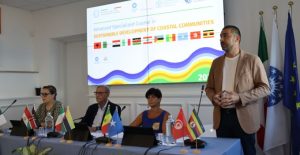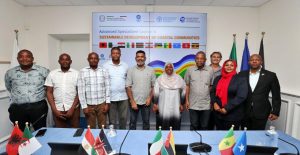The 5th edition of the 10-week Advanced Specialisation Course on Sustainable Development of Coastal Communities closed on Saturday, July 13, with the awarding of certificates.
The training offered the 14 officials from relevant ministries of different communities in the Mediterranean and Africa (Albania, Algeria, Egypt, Kenya, Italy, Mozambique, Senegal, Somalia, Tunisia and Uganda) a holistic view of the concept of sustainability as applied to a coastal community. Through a combination of theoretical lectures, hand-on practice and technical visits, it offered insights and perspectives to address the challenges related to the integrated management of the same areas in the coastal context, inspired by the model of the Tricase Port Museum and its community.


The Sustainable Development of Coastal Communities (SDCC) course is funded by the Ministry of Foreign Affairs and International Cooperation and organised by CIHEAM Bari with the technical support from the United Nations Food and Agriculture Organization (FAO) and the General Fisheries Commission for the Mediterranean (GFCM).
Saturday’s ceremony was attended by the Libyan delegation, led by Elhadi Mohammed Etorjamani, Director of the International Cooperation Department of the Ministry of Marine Wealth of the Republic of Libya. The delegation came to Tricase for the purpose of enhancing the results of the MAWEGO project and planning shared prospects for action to revitalize the fisheries and aquaculture sector in Libya.
Also attending the certificate award ceremony was the delegation composed of the governors of Kenya's 6 coastal regions. The Kenyan representation is involved in the Go Blue project, financed through the funds of the 11th European Development Fund (EDF) and implemented by the Italian Agency for Development Cooperation - AICS in partnership with the Kenyan government, relying on the collaboration of AICS and CIHEAM Bari to promote inclusive and sustainable economic growth in the coastal areas of the country.